Press Release
VADOC Offenders to Again Partner with the Virginia Department of Forestry & the U.S. Forest Service to Prevent, Control Wildfires
April 03, 2014
RICHMOND — Approximately 160 Virginia Department of Corrections offenders are training and working with Virginia Department of Forestry and U.S. Forest Service firefighters in the western part of Virginia as part of the suppression force for the 2014 fire season. The partnership utilizes low-risk, nonviolent offenders to fight wildfires and participate in fire-prevention activities.
“This partnership covers a vast number of counties and has proven to be very beneficial in saving forestlands and properties, both public and private,” said Virginia Department of Corrections (VADOC) Director Harold Clarke. “We have received really positive feedback from the Virginia Department of Forestry, the U.S. Forest Service and the general public regarding the work performed by these trained offenders. And the offenders themselves are proud that they are able to be a part of a team that directly helps the community.”
The first partnership began in 1996 with the U.S. Forest Service (USFS) at Cold Springs Correctional Unit and Work Center in Greenville, Virginia. Since then, the training has expanded with assistance from the Virginia Department of Forestry (VDOF) to include offenders from Patrick Henry Correctional Unit in Ridgeway, Virginia; Wise Correctional Unit in Coeburn, Virginia; and Appalachian Men’s Detention Center in Honaker, Virginia.
Each facility trains offenders in a variety of wildfire applications. Offenders must be medically sound, pass a physical endurance test, and be certified in First Aid and CPR. After training, offenders are considered to be entry-level certified wild land firefighters and must be recertified annually. Their general duties may include digging fire lines, back burning, monitoring for hot spots and mop-up (basic clean up after the fire has been controlled).
Offenders who have participated have proven their dedication to the program through adherence to the rigorous schedule, which includes leaving the correctional facility early in the morning and arriving back well after dark – just to get up the next morning to do it all over again. In addition to the firefighting skills learned, the program also helps each offender learn communication skills, responsibility, self-esteem and honesty.
VDOF’s Assistant Director of Resource Protection Steve Counts said, “I’ve been involved with and have provided annual training to the offender crews since 2006. The crews are motivated and well trained, and we’re proud of the work they do to protect the lives and property of their fellow Virginians. We work with them primarily on our large (100+ acres) fires, and they always do a terrific job. In addition to the offenders, the professional corrections officers who supervise the crews and the VADOC leadership have been just great.”
The expertise of these offender crews extends beyond the fireline. The U.S. Forest Service calls upon these crews to assist with everyday projects benefiting natural resources on public lands. “Partnering with the Department of Corrections allows us access to additional personnel that are vital in helping us accomplish our daily tasks,” says Forest Supervisor Tom Speaks. “Whether it is clearing roads or preparing recreation areas for the summer, many of our projects might not get accomplished if it wasn’t for this valuable partnership.” Three different Ranger Districts for the George Washington and Jefferson National Forests utilize offender crews nearly every day to assist with local projects.
During the early years of the VDOF partnership, offender crews helped with suppression efforts on about 80 percent of the wildfires in the western portion of the Commonwealth. More recently, because Virginia hasn’t experienced a lot of large wildfires, the offender crews have helped on approximately 15 percent of western Virginia wildfires.
“We’re fortunate to have the offender crews,” Counts said. “They are a valuable resource that we can count on to be there when we need them.”
More information on the VADOC can be found at www.vadoc.virginia.gov.
